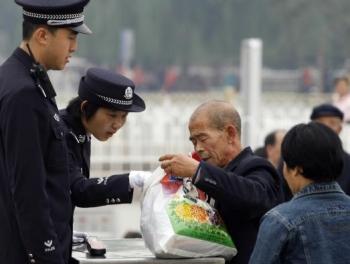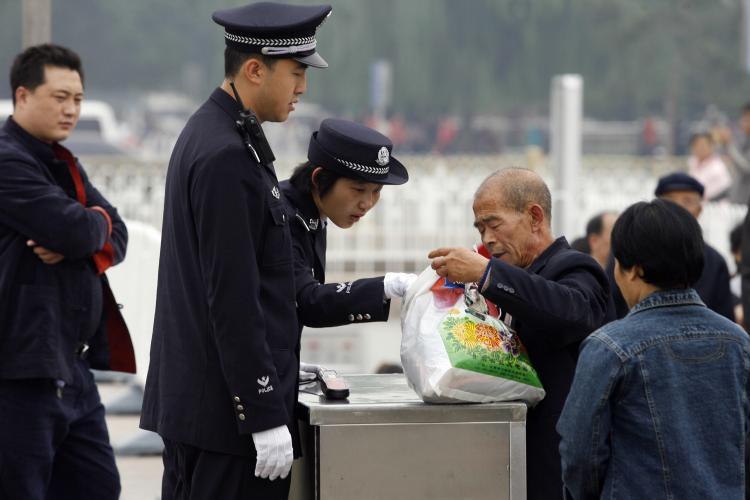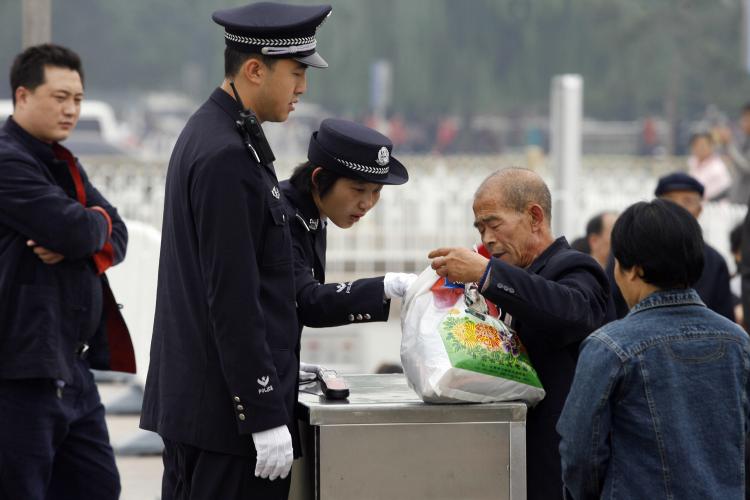Beijing’s Olympic Security Turmoil
The CCP’s ‘all for the security of the Olympics’ mindset is backfiring with everyday citizens in China.

A policewoman checks a man's bag on Tiananmen Square in Beijing ahead of the 17th National Congress of the Communist Party of China in October 2007. Intense security measures are already in place for next month's Beijing Olympics. Peter Parks/Getty Images
|Updated:






